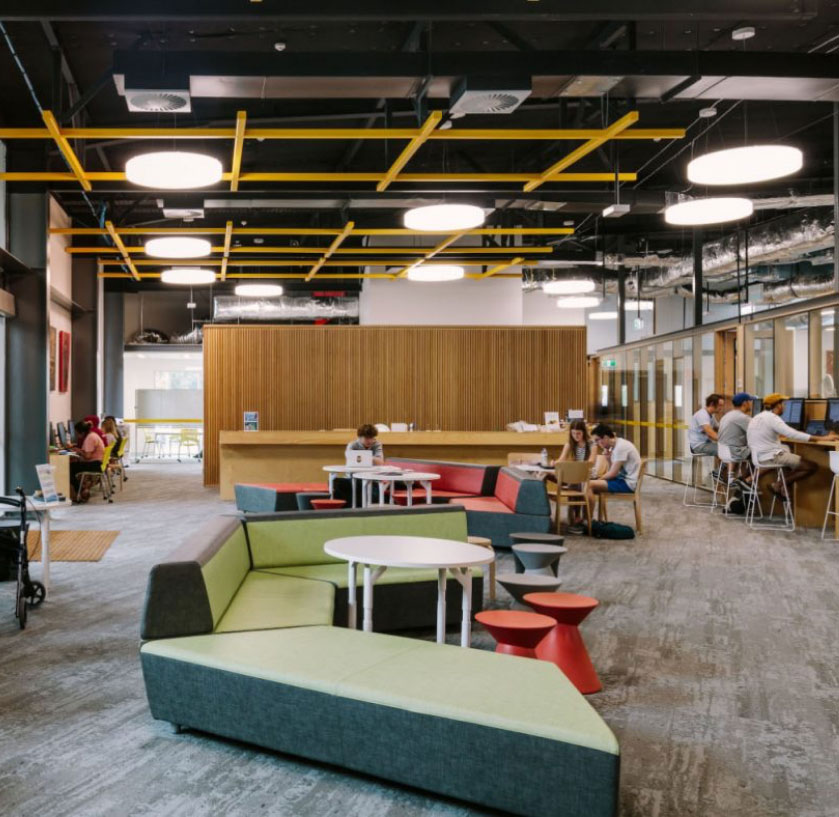March 9, 2022
IRU calls for an election agenda to reset higher education
The 2022 federal election provides a unique opportunity for government to move beyond the Covid-19 pandemic and set the policy foundations for a new phase in Australia’s economic and social development. Universities – bringing together education, skills, research and innovation – have a crucial role to play in creating a future that benefits all Australians.
The eight universities that make up the Innovative Research Universities (IRU) are spread across every mainland state and territory, giving us a national perspective on the key issues for higher education and research policy. The IRU is committed to constructive engagement with government and our pre-election policy statement sets out 11 specific policy ideas for the years ahead.
The history of our member universities goes back to the 1960s and early 1970s when, under both Liberal and Labor governments, there was an expansion of new forms of higher education and research to meet the needs of the nation.
In 2022, with urgent skills and workforce needs in the wake of the pandemic, and larger social, economic, technological and geopolitical shifts causing rapid change, it is time for a renewed focus on the role of universities and higher education policy.
Firstly, despite the gains made since the early 2000s in participation, there is still unfinished business in providing access and equity for domestic students. In addition to addressing immediate skills shortages, over the next five years Australia will experience the demographic impacts of the baby boom of the early 2000s, leading to a significant increase in the number of young Australians moving from school to further study, training and work.
Now is the time to commit to continuing to broaden access to higher education and to provide the platform for universities to continue to innovate with new forms of teaching and learning. We recommend that government should fund additional places for domestic undergraduate students and should uncap funding for all Indigenous students, regardless of where they live, to address the Closing the Gap goals.
Secondly, as we plan for the future, Australia’s research and innovation capability should be a major focus. The global R&D system has undergone massive change over the last 20 years – since 2000, total R&D investment worldwide has tripled, with more and more shifting away from the traditional powerhouses of North America and Western Europe towards the Indo-Pacific.
Australia needs a systematic, long-term plan for our place in the 21st century innovation system. The IRU welcomes the current government’s commitment of over $2 billion in new funding for new programs that will boost industry engagement and the commercialisation of ideas from Australian universities.
Over the coming years, we believe this should be built upon and broadened, to incentivise engagement by university researchers with all parts of Australian society, including partners in the government, not-for-profit and community sectors.
We also believe that the next government should take steps to protect and support basic, or “blue-sky” research, which is essential for generating new knowledge and ideas, and which will underpin future innovation and long-term prosperity. While we prioritise critical technology areas, we must also invest in the humanities, arts and social sciences, which will be equally important for the future of Australia and its place in the world. Deep understanding of the countries, cultures and languages of our region will be a crucial sovereign capability for Australia in the 21st century and a source of comparative advantage.
Thirdly, as the world emerges from the pandemic, we will need to develop new models of
international education and research collaboration. Times have changed and heightened geopolitical tensions bring new challenges for universities, but we must not shy away from the world.
Universities and government have worked well together over the last few years on managing the risks of foreign interference, and we should now build on that for a proactive and positive agenda for the role of education and research in strengthening our engagement with the Indo-Pacific.
Finally, let’s learn from the experience of the pandemic and take the good parts forward, innovating for the future. Over the last two years, universities pivoted quickly to new online and hybrid forms of education, while also providing additional counselling and support for students.
We recommend that government creates a new Innovation and Infrastructure Fund, which would evaluate what has worked well, mainstream new technologies and programs, and support cutting-edge facilities for the 21st century. This has the potential to open up higher education further for both domestic and international students, turning the pandemic into a positive.
This article first appeared in The Australian.







